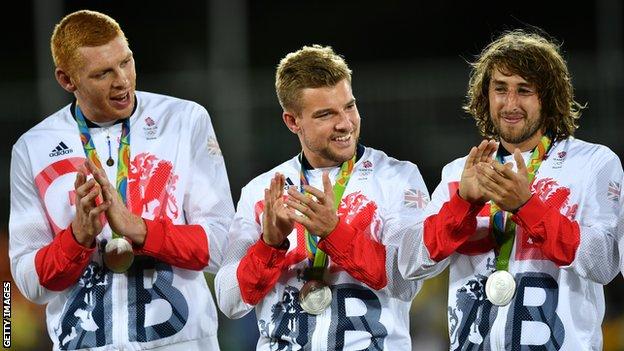Antoine Dupont is set to make his eagerly anticipated sevens debut on Friday after being named in France’s squad for the Vancouver SVNS event.
Rugby union’s star player has left behind the Six Nations in a bid to win a medal at his home Olympic Games in Paris this summer.
The 27-year-old scrum-half is not the first to attempt the switch from XVs to sevens.
In 2016, three stars of XVs rugby – Sonny Bill Williams, Quade Cooper and Bryan Habana – embarked on Mission: Olympic Sevens.
Australia star Cooper and South Africa winger Habana were not even selected by their countries, while Williams’ campaign ended in misery when he was injured in New Zealand’s first match in Rio.
So why is it so difficult to make the switch and how can Dupont succeed where others have failed?
Fitness and speed of play
Played on a full-size pitch, a game of sevens lasts 14 minutes and includes the shortest of breaks for half-time. Unlike XVs there are few stoppages in play. The pace is relentless.
Former Saracens centre and USA international Chris Wyles had to make a rapid readjustment before he played at the Rio Olympics.
While his club team-mates celebrated a European and Premiership double, Wyles spent the next few weeks getting fit for sevens. It meant running – lots of running.
“I am not going to lie, it was a tough two, three months coming from XVs without any summer tournaments,” Wyles told BBC Sport.
“Not the technical side of things, it is definitely just the fitness – the speed of play and the amount of metres ran in training.”
Dupont opting out of the Six Nations demonstrates the Frenchman’s desire to make the 12-man Olympic squad.
“It shows how seriously he is taking it. More than that, it is a sign for the players in the squad currently that he is sacrificing things to try and make this squad,” Wyles said.
“In order to promote the right culture in the team he is deciding to sacrifice quite a bit, which is a bold decision.”
‘Dupont’s high rugby IQ’ will help him adapt
With only three forwards on the pitch and wide-open spaces to attack, the three-time Six Nations player of the championship must learn a different style of rugby.
“The challenge with sevens is that you have to be able to do it all,” former England and Great Britain sevens captain Tom Mitchell told BBC Sport.
“Everyone has to hit rucks and everyone has to be able to defend one-on-one in quite a lot of space. For me, those are the bigger challenges.
“Dupont is one of the most well-rounded players in his position with his ability to be strong in the contact area and with some of his tackling.”
Scrum-half is Dupont’s logical sevens position, but Mitchell says the hosts could play him at hooker to get “another ball-player on the park”.
His “special ability” to use his body in the contact area and his talent to see space and execute at a high tempo makes him a scary sevens prospect.
“He is probably going to go better than any other convert that we have ever seen before,” the silver medallist at the Rio Olympics added.
“Someone like Dupont, who has a high rugby IQ, will not struggle to pick it up but there are different scenarios that he will encounter on a sevens field that he won’t in XVs.”
‘Hitting your maximum potential across every game’

In 2016, Mitchell’s GB side beat Argentina in extra time in the quarter-finals, then squeezed past South Africa in the semi-finals before falling to Fiji in the final.
It was a rollercoaster of emotions over the space of 48 hours.
“The mental demands of a sevens tournament are different to XVs,” explained Mitchell, who competed on the sevens circuit for 10 years.
“One of the things that differentiates the good players from the great is the ability to hit your maximum potential across every game.
“Whether you’ve got two or three games a day, you have to get up for a game and simmer back down before getting up for another one, on multiple occasions, spread across two days.
“That is a real challenge. In XVs it is just one 80-minute game. It is a very different experience from rising and falling across a weekend of sevens.”
What are Dupont’s chances of winning an Olympic medal?
France, who failed to qualify for the Tokyo Olympics, are seen as medal contenders at their home Olympics after a fourth-place finish on the World Series last season.
They failed to win an event but Dupont’s experience of winning the 2022 Grand Slam with France, on top of trophies with Toulouse, offers a unique knowledge base.
Fuelled by the disappointment of not winning a home World Cup, could Dupont’s special qualities help France to sevens glory in front of a packed Stade de France on 27 July?
His first challenge will be to make the final squad.

